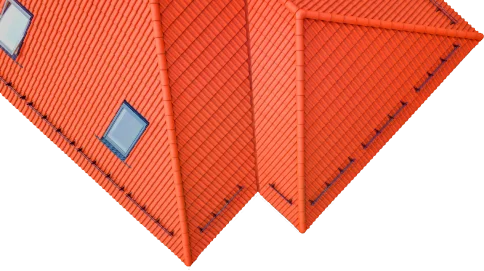With years of experience repairing roofs in Philadelphia, we understand the unique challenges that homes and businesses face in the region. Our team specializes in flat roofs, shingle roofs, tile roofing, metal roofs, and slate roofs, ensuring that we can handle any roofing project with precision.
Your roof may need repairs if you notice any of the following:
Leaking roof or roof leaks inside your home
Damaged shingles or missing shingles
Water stains on ceilings or walls
Sagging areas or structural weaknesses
Mold or mildew growth
Extreme weather damage from storms, hail, or strong winds


When disaster strikes, Philly Wide Roofing is here to help with emergency roof repair services. Whether it’s a storm-damaged roof, hail-damaged roof, or a leak that is coming through your ceiling, our team provides rapid response services to prevent further damage. Don’t wait for a minor roof issue to become a major problem—contact us immediately for fast and reliable solutions.
We specialize in repairing and replacing a variety of roofing systems, including:
Common in Philadelphia roofing, flat or low-slope roofs require specialized repair techniques.
Asphalt shingles are one of the most common roofing materials. We repair missing shingles and replace damaged shingles.
Metal roofing is durable but can suffer from rust or leaks over time.
Slate tiles provide longevity, but they can crack or loosen.
Tile roofing offers a beautiful aesthetic but requires expert handling to prevent further damage.
The cost of roof repair varies based on multiple cost factors, including:
Small roof leaks may be repairable, while severe roof damage might require a full roof replacement.
Asphalt shingles, metal roofs, slate tiles, and fiberglass roofs all have different repair costs.
The complexity of the roofing job and the steepness of your roof can impact the overall price.
An old roof may require more extensive repairs or even a full roof replacement.
Regular roof repairs and maintenance helps prevent costly repairs. Our professional roofing company offers roof inspections to identify where the leak is coming from and assess the overall condition of your roofing system. Preventative maintenance includes:
Checking for damaged shingles
Cleaning gutters and downspouts
Addressing weather conditions that could impact your roof
If you’re looking for a reliable roofing contractor, Philly Wide Roofing provides free estimates and honest assessments. We determine the best course of action, whether it’s to repair a roof or recommend a roof replacement.
A professional inspect your roof will determine whether a roof leak repair is sufficient or if you need to replace a roof entirely. Signs you may need repairs include minor leaks, missing shingles, or localized damage, while extensive damage, sagging, or an old roof at the end of its lifespan may require a full roof installation.
The lifespan of a roof depends on the roofing material used. Asphalt shingles last around 20-30 years, while metal roofs can last 40-70 years. Slate and tile roofs may last over 100 years. Regular maintenance and professional inspections extend the life of a roof.
Damage to your roof can be caused by extreme weather (hail, wind, heavy rain), falling debris, poor installation, improper maintenance, or the natural aging of materials. Regular inspections can prevent minor damage from becoming severe.
Roof repair costs vary based on the extent of damage, type of roofing material, and labor costs. The average cost can range from $300 for minor repairs to $3,000+ for significant damage. The cost to replace a roof entirely depends on square footage, material costs, and complexity.
A steep roof is harder to work on, increasing labor costs. It requires special safety equipment and takes longer to repair, making it one of the most expensive roofing jobs compared to a low-slope or flat roof.
The cost ranges from $3 to $10 per square foot, depending on the roofing material. Asphalt shingles are the most affordable, while metal, slate, and tile are more expensive. Whole roof replacements are calculated based on total square footage.
Several cost factors determine pricing, including roofing material, labor costs, extent of damage, roof pitch, accessibility, and whether it’s a residential or commercial roof. Your roofing budget should account for unexpected issues that may arise during repairs.
While some small roof leak repairs (like sealing a small leak) can be DIY, a professional roofer is recommended for safety, expertise, and proper materials. Improper DIY repairs may lead to more costly damage in the future.
Common signs include water stains on ceilings or walls, damp insulation, peeling paint, mold growth, or dripping water. Ignoring a leaking roof can lead to structural damage.
Look for a licensed, insured repair contractor with good reviews and experience with your specific roofing system. A professional inspect your roof before providing a detailed quote.
It’s recommended to inspect your roof annually and after major storms. Regular inspections help identify minor issues before they become costly repairs.
In many cases, you may be able to repair a leaking roof instead of replacing it, depending on the extent of the damage. If your roof is nearing the end of its lifespan, a full roof replacement may be the better long-term solution.
Metal roofs, slate, and tile last the longest. Asphalt shingles are affordable but may require replacement sooner. Different roofing materials have varying costs and lifespans.
A roof repair service typically includes a professional inspection, leak detection, shingle replacement, sealing gaps, flashing repairs, and addressing water damage.
Routine maintenance like cleaning gutters, removing debris, and addressing minor leaks early helps prolong your roof’s lifespan. Avoid walking on the roof unnecessarily and schedule professional inspections.
Your roof protects your home from weather damage, insulation issues, water leaks, mold, and structural weakening. Proper maintenance ensures it stays effective.
If less than 30% of your roof is damaged, repairs are often sufficient. If the whole roof is aging, experiencing widespread leaks, or showing significant wear, a full roof replacement is the best option.
Common culprits include fallen branches, debris buildup, standing water, ice dams, poor flashing, and aging materials. Proper maintenance reduces risks.
Most roof repairs take a few hours to one day, depending on the extent of the damage. A full roof replacement can take several days.
Yes! A professional roofer should always provide a free estimate before starting work. This helps you plan your roofing budget and understand the potential costs involved.

